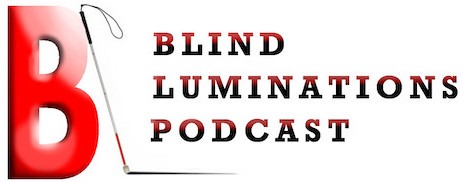(Note: This is the first in a three part series. Part two touches upon challenges with technology and is available here. The final entry deals with being around others again and can be found here.)
On our last podisode, Jan and I talked about dealing with blindness and the Covid-19 pandemic.
While she mainly focused on Ontario’s Disability Support Program (ODSP,) clawing back of Canada’s Emergency Response Benefit (CERB) and the uncertainty both have created, my concerns come largely from a different area.
Even though financial issues still bother me, it’s every day interactions that are sometimes harder to manage.
Before getting into my own experiences, let me stress that I’m not trying to diminish or downplay anyone else’s. How we cope with emotionally sensitive events is different from person to person and I’d never claim to know how someone else should deal with their own issues. If you’re worried about your own mental health or someone else’s, here are some Canadian and American resources to contact.
By the way, doing a quick Google search should give you the same results if you live in another country. I literally typed in “Mental Health resources Covid-19 (insert country here)” to find the last two links I shared in this post.
With that being said… or typed, let me break down part one for you.
I Go Forwards, You Go Backwards
Things have already changed a lot since the Covid-19 pandemic began. Trends have come and gone, advice from medical experts has shifted and something called Tiktok has taken the world by storm. (Don’t worry, it will die a horrible death once more people get out of the damn house.)
Even though many have since adjusted, one of the things that was weird at first was hearing about others who couldn’t do whatever they wanted to at any given time. On the surface, I totally understood the reaction and didn’t have an issue with anyone feeling that way — it’s perfectly natural.
Underneath though, I was kind of like, “Um… hello? Welcome to the past 19 years of my life, bitches!”
All joking aside, it really did mess with my head to read so many people (friends and strangers alike) talk about how this was such a terrible thing to work through. Losing my vision in fall 2001, I’d already become accustomed to this lifestyle a long time ago. It also left me feeling a little bit resentful because, for me at least, they were up in arms about a temporary situation while mine was a little more… permanent. It’s hard to admit that without sounding like a jerk though, you know?
Not having that same sense of unfamiliarity, it also made me question how others saw the way I live. Did they think my life was terrible? Was their view of what I do now influenced by current perceptions? Did they think that I never wore pants when working from home? (Sorry… you really didn’t need that last visual, did you?)
It’s weird because even though everyone suddenly had to deal with the same things I do, it wasn’t where we could suddenly relate to one another. I don’t have any friends who are blind and before the pandemic, no one truly knew how sheltering the experience could be. I’m not saying that they left me in a corner to die or something, I am married and have a very active social life actually.
It’s just that though: Having gone through both extremes, everyone else was now in the adjustment stage I found myself in about 19 years earlier. For awhile, I had a really hard time putting myself back into that mindset so I could empathize.
Long story short? Even when everybody got dragged down to my level, I still couldn’t catch a friggin’ break! Damn you abled people! Damn you all to hell!
Somewhere We Will Meet
I don’t want people reading this to feel bad or think I hate them for having human emotions.
The truth is that all of these thoughts illustrate how we get inside our own heads sometimes, especially when isolation sets in. I’ve been trying to put myself in other people’s shoes and find it helps a lot. All I’d ask is that others do the same and take a second to evaluate how bad things really are in their current situations.
I’m not talking about the unknowns either. When it comes to right this second, what is your situation? Everyone still has problems obviously, but things might not be as bad as you think.
I thought my life was over after going blind at 18-years-old. It actually allowed me to accomplish more than I would’ve otherwise though. It got me into writing, led me towards my local college’s journalism program and that’s where I ultimately met my future wife Jan, the Guiding Goddess herself. It’s not about how restricted you are in the end, it’s about what you decide to do with these limits.
As I mentioned before, everyone processes things differently and I get it. People underestimate their own ability to adapt however. Before being vocal about how bad things are for you, take a second to consider who will be reading what you write and what their circumstances are.
If nothing else, maybe you’ll find that some things aren’t so impossible to overcome after all.
Start Up The Chatterbox!
Being the first entry in a three part series, this only covers one of many stresses from dealing with blindness during the Covid-19 pandemic. What are you facing and how has coping with these circumstances been? Leave your opinions in a comment below or let us know privately through our contact form.
Click here to continue with part two of our series.
